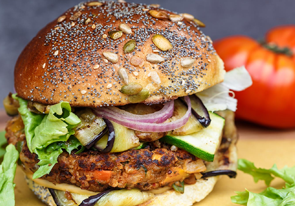How chewing gum helps you avoid unhealthy snacks

This page helps you to improve your diet by creating healthy and wholesome snacks, but while it is a fantastic habit to improve our cooking abilities, it is also important to answer the Shakespearean question of “to snack or not to snack”. Also, let’s be real – while some of us know what a healthy snack is, we often revert to unhealthy cravings in our most stressed-out times. Don’t worry; I’m not here to judge you; I’m merely here to tell you about how a known household item can help you cut down on unnecessary sweet and salty snacks.
Chewing gum has a reputation for being a “bad habit”; this label might have arisen because of the negative effects that it has on oral health. The sugar present in chewing gum would cause wearing down of the enamel and also more serious issues like tooth decay and gum infections. People who chewed gum often may have had to go for Dental Implants Portland, OR (or elsewhere) to fix the damage caused by chewing gum. However, now things have changed.
The emergence of sugar-free chewing gum has not just been a welcome change; it has changed the way many of us view chewing gum altogether. While chewing gum is obviously fun, the addition of xylitol as a sweetener has health benefits, including improving gut health and reducing tooth decay (especially compared to its sugar-containing alternatives). That said, it’s benefits go further, as studies have suggested:
“A small but significant reduction in snack intake was observed; chewing gum reduced the weight of snacks consumed by 10% compared to no gum (p<0.05). Overall, chewing gum for at least 45 min significantly suppressed rated hunger, appetite and cravings for snacks and promoted fullness (p<0.05). This study demonstrated some benefit of chewing gum which could be of utility to those seeking an aid to appetite control", says a 2011 study which looked at the evolution of snacking patterns of 60 test subjects.
The results are not just promising on the baseline of reducing snacking – it also shows that sugar-free gum helps us focus on the tasks at hand. A 2015 study found that “chewing gum was associated with enhanced productivity and reduced cognitive errors at work, as well as heightened cortisol in the morning” and that it was associated with heightened alertness, increased productivity, and fewer cognitive problems.
Chewing gum can boost cognitive capacities by increasing alertness and concentration, improving mood, improving cognitive performance, and causing mastication-induced arousal. To avoid the detrimental effects of sugar on teeth, buying sugar-free gum is a good idea. In 2002, researchers used control groups to analyze the impact of chewing gum on memory retention, and it improved the abilities of test subjects in both immediate and delayed word recall.
Unhealthy snacking adds loads of unnecessary calories to our diets, and all too often it does not even help us feel better. Snacking can lead to weight gain, nutritional deficiencies (as our bodies fail to get the necessary nutrition from chips or chocolate bars), digestive problems such as heartburn, indigestion, and constipation, as well as tooth decay and cravings for… wait for it… more unhealthy snacks.
Next time you’re feeling the urge to go to the vending machine at work, because you believe a sugar rush will improve your focus or just because your break always includes a bag of chips, reconsider! A sugar-free chewing gum won’t add to your calorie count, and also improves your focus and memory retention.
Bill Wirtz is the Senior Policy Analyst at the Consumer Choice Center.
- The Cultural Impact of THC Beverages - May 13, 2024
- Vegan Spaghetti Bolognese Recipe - July 31, 2023
- Delicious Chicken Chop Suey with Vegetables and Rice Recipe - July 31, 2023









